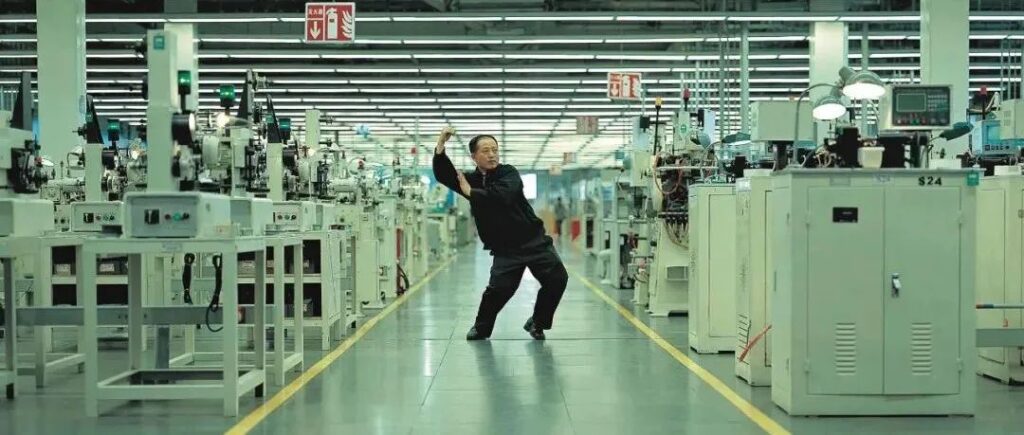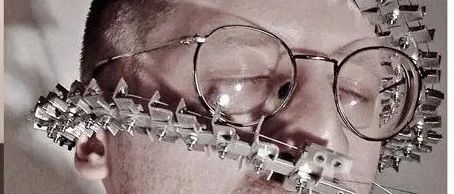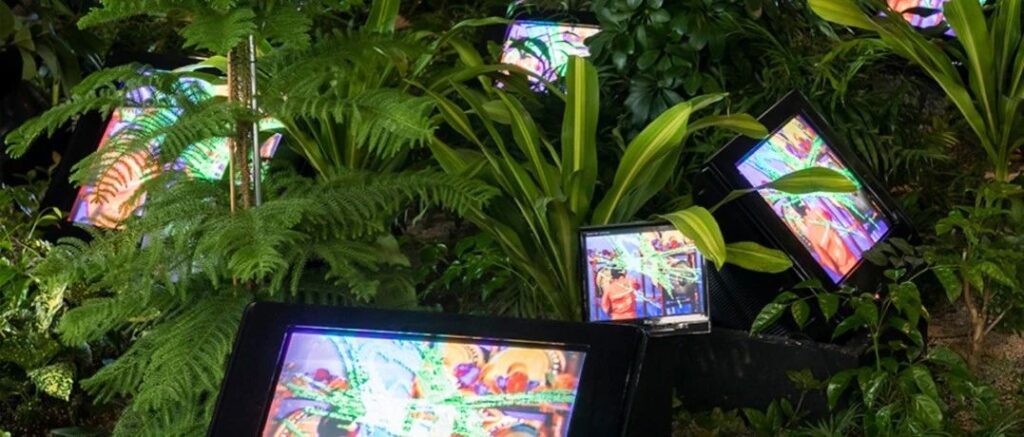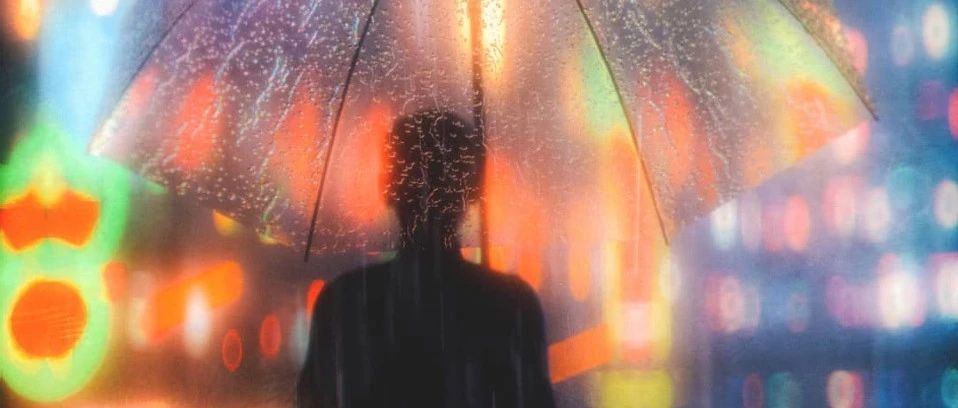About Artist
关于艺术家

Cao Fei, a well-known modern female artist, was born in 1978 in Guangzhou and now lives and works in Beijing. Having graduated from the Guangzhou Academy of Fine Arts in 2001, she is famous for her video, multimedia installations, and network works. The majority of the pieces represent China’s current fast and chaotic urbanization.
曹斐,现代著名女艺术家,1978年出生于广州,现生活工作于北京。2001年毕业于广州美术学院,以影像、多媒体装置和网络作品闻名。大部分作品代表了中国当前快速而混乱的城市化进程。
“These creative enlightenment moments were quite natural to me as a youngster.”
“这些创造性的启蒙时刻对我年轻时来说是很自然的。”
She remembered seeing her father carve since she was a youngster, and she followed him to Sun Yat-sen’s mansion to install the statue. She was attending the inauguration of her parents’ exhibition or imitating her father in carving a likeness of a young Sun Yat-sen. The lights in his father’s workshop were dark, and Cao Fei, who was just a year old, crawled beside her father’s carved statue of Zhou Enlai. For her, the popular culture of Hong Kong and Taiwan that flooded into the mainland in the 1980s and 1990s was part of her childhood. The retro tones and elements are seen in her work, and one can see the profound influence of these popular cultures on her.
她记得她从小就看到父亲雕刻,她跟着他到孙中山的府邸安装雕像。参加我父母的展览开幕式,或者模仿我父亲雕刻年轻的孙中山的肖像。父亲的工作室里灯火通明,年仅一岁的曹斐在父亲雕刻的周恩来雕像旁爬行。对她来说,八、九十年代涌入大陆的港台流行文化是她童年的一部分。在她作品中看到的复古色调,元素便能看出这些流行文化对她的影响很深。
Whose utopia?
谁的乌托邦?

“The existence of art is the fusion of all boundaries”
“艺术的存在,就是融合所有边界”
The word utopia comes from the Greek word“ou-topus”, which means “a place where there is no” or“a good place”. A deeper meaning can be understood as“ideal”, “the country of fantasy”.
烏托邦一詞來源於希臘語“ou-topus”, 意思是“沒有的地方”或“好的地方”。再深一層的的意思可以理解為“理想”,“空想的國度”。
For this project, Cao Fei stayed at the OSRAM Lighting Factory in Foshan for nearly half a year and had close contact with 20 workers. These workers became the film’s protagonists, interpreting ideal images that cannot be achieved in real life. Mixed with poetry, humor, and bitterness, the film embodies the clash between passionate dreams and bleak reality. It presents the delicate relationship between romantic sentiments and the grey aesthetics of industrial production.
为了这个项目,曹斐在佛山欧司朗照明厂逗留了近半年,与20名工人近距离接触。这些工人成为影片主角,演绎在现实生活中无法达成的理想形象。影片夹杂着诗意、幽默与苦涩,体现了激情梦想与黯淡现实之间的冲撞,并呈现了浪漫主义情绪与工业生产的灰色美学之间的微妙关系。

In the foreground of the film is another worker working non-stop while the protagonist, holding a guitar, performs his performance at the workplace.
影片的前景是另一个不停地工作的工人,而主人公则拿着吉他在工作场所表演。
Cao Fei reveals the absurdity of actual life and its influence on individuals’ inner worlds through bizarre and sardonic portrayals. These works also demonstrate that, in this new market economy and stability period, everyone may utilize their ideas to discover a means to exist.
曹斐通过离奇讽刺的描写, 揭示现实生活的荒谬及其对个人内心世界的影响。这些作品也表明,在这个新的市场经济和稳定时期,每个人都可以利用自己的想法来寻找生存的手段。

She placed the characters in the center of two rows of manufacturing machines, allowing them to express their wishes. What she wants to express is that every young person in industrialized countries has dreams but can only succumb to reality.
她将人物设置在两排制造机械的中央,让他们表达自己的愿望。想表达的是在工业化国家的每个年轻人都有梦想,但却只能向现实屈服。

Similarly, as she reminds herself, she also reminds us that as artists, we must actively observe the invisible societal suffering. It is our moral responsibility to help them improve their life.
同样,她提醒自己,也提醒我们,作为艺术家,我们必须积极观察无形的社会苦难。帮助他们改善生活是我们的道德责任。

“Ten years later, she came out of this workspace and really flew out like a peacock and became herself.” Cao Fei said,
“十年后,她从这个作品空间里走出来了,真的成为孔雀飞出去了,成了她自己。”曹斐说,
One of the girls in the video, Lin Ailing, thanked Cao Fei for her advice. After completing this task, the girl leaves the factory to learn English and translation. In Zhuhai, she has now developed two national cultural and creative parks and an educational institution.
视频中的女孩之一, 林爱玲感谢曹斐的建议。完成这项任务后,女孩离开工厂学习英语和翻译。在珠海,她现在已经开发了两个国家文化创意园区和一个教育机构。

Cao Fei’s work attempts to achieve freedom of expression by overcoming the hard and inflexible linguistic system.
曹斐的作品试图通过克服僵硬的语言系统来实现表达的自由。
Cao Fei’s works are always on urbanization, life, and other social issues. It elicits profound empathy for the working class while applauding the ambitions and utopian goals of individuals who had to endure challenging living conditions in a societal milieu of optimism and wealth.
曹斐的作品始终关注城市化、生活等社会问题。它引起了对工人阶级的深刻同情,同时为那些不得不在乐观和财富的社会环境中忍受艰苦生活条件的个人的雄心和乌托邦目标喝彩。
We are tired of the monotony of life, the limited time makes us worry too much, so we must choose to surrender to this “walking dead” body. It’s as if we’d like to escape reality and enter our own fantasy“utopia”, but we can’t keep up with the changes in society and endure the oppression that life brings. Therefore, Cao Fei used the camera to allow migrant workers to breathe under the policies of the capitalist society.
我们厌倦了单调的生活,有限的时间让我们担心太多,所以我们必须选择臣服于这个“行尸走肉”的身体。就好像我们很想逃离现实,进入我们自己充满幻想的“乌托邦”, 但是,我们跟不上社会地變化,一直忍受生活帶來的壓迫感。于是,曹斐通过镜头,让农民工在资本社会的政策下得以喘息。

She expands her utopia beyond the workplace to include a city, country, and global society. It’s a revolution in how we live, interact with others, and redefine ourselves. Naturally, the internet and the virtual world have provided her with a whole new dimension in which to accomplish her desire. She never forgets, however, that utopias are never self-contained; all utopias are augmented idealized versions of the communities we desire to create.
她将她的乌托邦扩展到工作场所之外,包括一个城市、国家和全球社会。这是我们生活、与他人互动和重新定义自己的方式的一场革命。自然,互联网和虚拟世界为她提供了一个全新的维度来实现她的愿望。然而,她永远不会忘记,乌托邦从来都不是自给自足的。所有乌托邦都是我们希望创建的社区的理想化版本。
*all images and artworks belong to the artist & his representing galleries respectively
*所有图像和艺术品分别属于艺术家及其他们代表的画廊
Translation 翻译 Alice Yip
FOR MORE RELATED CONTENT
本篇文章来源于微信公众号: SHMADNESS








